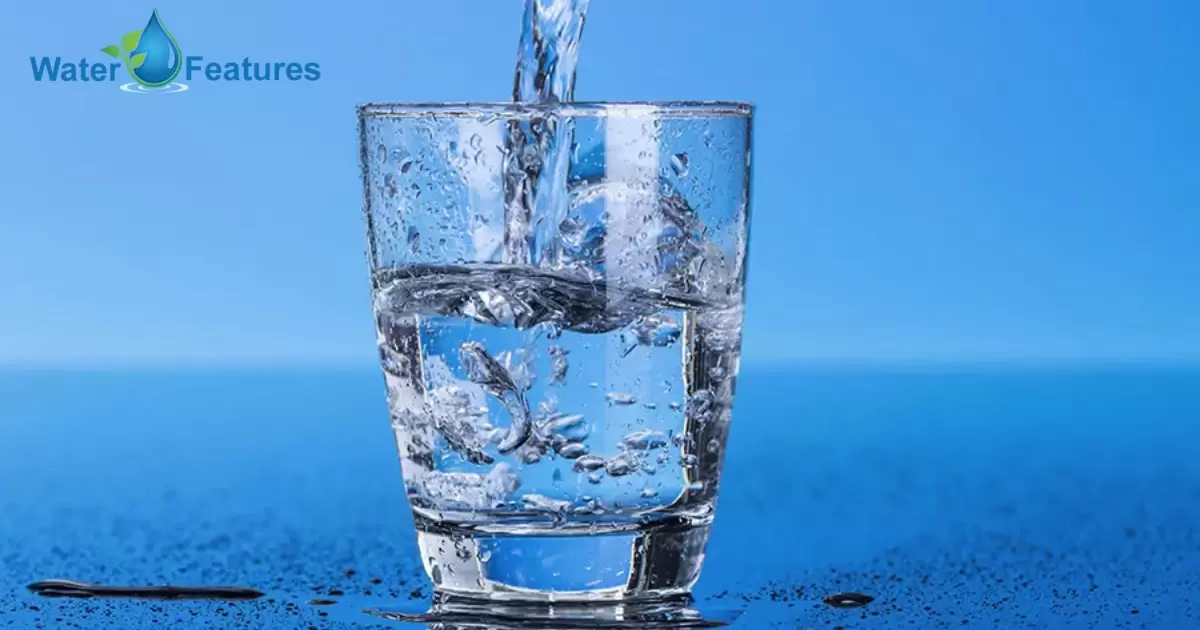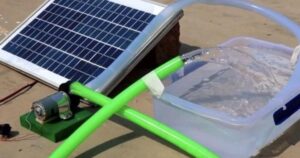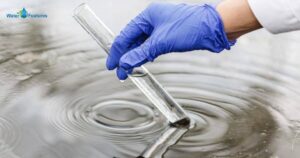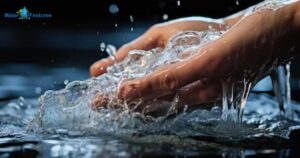Tap water is something most of us take for granted, turning on the faucet without much thought. But not all tap water is created equal. In some places, there are concerns about water quality and safety. One such city that has faced its share of challenges with tap water is New Orleans.
In this article, we will delve into the world of New Orleans tap water, exploring its quality, sources, and the steps taken to ensure it’s safe to drink. Can you drink the tap water in New Orleans? New Orleans, with its rich culture, vibrant music scene, and unique cuisine, is a city known for its irresistible charm. Picture yourself strolling down the streets of the French Quarter, where jazz music fills the air and the aroma of gumbo wafts from nearby restaurants.
You’re thirsty, and you spot a public water fountain. Would you confidently take a sip, or would hesitation get the best of you? This is a real-life dilemma for many in New Orleans, and understanding the quality of tap water here can make all the difference in your stay.
The State of Tap Water in New Orleans
New Orleans primarily sources its tap water from the Mississippi River, which is known for its high sediment content and susceptibility to contamination. The Sewerage and Water Board of New Orleans (SWBNO) undertakes several treatment processes to ensure the water is safe to consume.
These processes include coagulation, flocculation, sedimentation, filtration, and disinfection through the use of chlorine. Despite the initial challenges posed by the river’s water quality, the treatment processes are highly effective in removing impurities and pathogens
Where Does New Orleans Get Its Water?
New Orleans’s primary water source is the renowned Mississippi River, which winds its way through the city. The Sewerage and Water Board of New Orleans (SWBNO) relies on this mighty river to provide a consistent and accessible water supply for the city’s residents and visitors.
Despite the challenges posed by the river’s sediment content and potential for contamination, extensive treatment processes are in place to ensure the water meets safety standards. These treatments help remove impurities, pathogens, and contaminants, making the water safe for consumption
Who Regulates New Orleans Drinking Water?
New Orleans’ drinking water quality is subject to strict oversight by various authorities to ensure it meets safety standards. A key player in this regulatory process is the Louisiana Department of Health (LDH), which works alongside the EPA. The LDH sets state-level regulations and guidelines to complement the federal standards established by the EPA.
They conduct independent testing and oversight to confirm that New Orleans drinking water is safe for consumption.This collaborative effort between local, state, and federal agencies ensures that the city’s tap water remains of high quality and meets all required safety standards.
Where Does New Orleans Get Its Water?
New Orleans, a city famous for its jazz music and delicious cuisine, gets its water primarily from the mighty Mississippi River. This iconic river flows along the city’s edge, serving as the main source of tap water for both residents and visitors.
Getting water from the Mississippi River isn’t as simple as taking a dip, it goes through a rigorous treatment process to ensure it’s safe for consumption. The Sewerage and Water Board of New Orleans (SWBNO) takes water from the river and subjects it to various treatments.
These treatments involve removing impurities, disinfecting the water, and meeting the strict quality standards set by the United States Environmental Protection Agency (EPA). So, when you turn on a tap in New Orleans, you’re essentially experiencing a blend of nature and advanced treatment that provides clean and safe drinking water to the city.
Treating New Orleans Drinking Water
Coagulation
Coagulation is the first step in treating New Orleans drinking water. In this process, chemicals are added to the water to make tiny particles clump together, forming larger, easier-to-remove particles
Flocculation
Flocculation comes next. Here, gentle stirring encourages the newly formed particles to collide and join, creating even larger flocs. This helps in the removal of impurities.
Sedimentation
After flocculation, the water is allowed to sit quietly in a sedimentation basin. During this stage, the heavier flocs settle to the bottom, leaving cleaner water above.
Disinfection
In the disinfection phase, chlorine is added to kill any remaining bacteria, viruses, or other harmful microorganisms in the water, ensuring it’s safe for consumption.
pH Adjustment and Fluoridation
The pH of the water is adjusted to make it less corrosive to pipes, and fluoride is often added to help prevent tooth decay in consumers.
Filtration
The final step involves passing the water through filters, which trap any remaining particles and ensure that the water is clear and free of contaminants. This process produces clean, safe drinking water for the residents of New Orleans.
Monitoring
Regular tests and checks are conducted to ensure the water consistently meets safety standards.
Chlorine Residual Adjustment
The amount of chlorine in the water is adjusted to maintain disinfection as it travels through the distribution system.
Delivery
The treated water is finally delivered to homes, businesses, and public facilities, providing safe and clean drinking water to the people of New Orleans.
| Topic | Information |
| Water Source | The Mississippi River is the primary source, with additional groundwater from the Southern Mississippi Alluvial Aquifer. |
| Treatment Processes | Coagulation, flocculation, sedimentation, filtration, and disinfection using chlorine. |
| Regulatory Oversight | The Louisiana Department of Health (LDH) and the EPA ensure water quality meets safety standards. |
| Saltwater Intrusion Mitigation | Levees, floodgates, and pumps protect against saltwater intrusion from the Gulf of Mexico. |
| Lead Concerns | Ongoing efforts to replace lead service lines and offer free lead testing for residents. |
| Chlorine Disinfection | Chlorine is used for disinfection, affecting the water’s taste and odor, exploring alternatives. |
| Quality Standards | Adherence to stringent quality standards set by the United States Environmental Protection Agency (EPA). |
Sources Of Drinking Water in New Orleans, Louisiana
New Orleans, Louisiana, draws its drinking water primarily from the Mississippi River, which flows alongside the city. This abundant water source is vital to meeting the water needs of residents, businesses, and visitors. It’s not a simple matter of scooping up river water. it undergoes an intricate treatment process to make it safe to drink. The Sewerage and Water Board of New Orleans (SWBNO) is responsible for treating this water.
This treatment process includes coagulation, flocculation, sedimentation, filtration, and disinfection with chlorine. These steps effectively remove impurities and ensure the water meets stringent quality standards set by the United States Environmental Protection Agency (EPA). New Orleans also relies on groundwater from the Southern Mississippi Alluvial Aquifer.
This groundwater source provides a supplemental supply of drinking water, although the majority of the city’s water needs are met by the treated river water. Together, these sources form a crucial part of New Orleans’ water infrastructure, ensuring that residents and visitors have access to safe and clean drinking water.
New Orleans Carrollton Waterworks
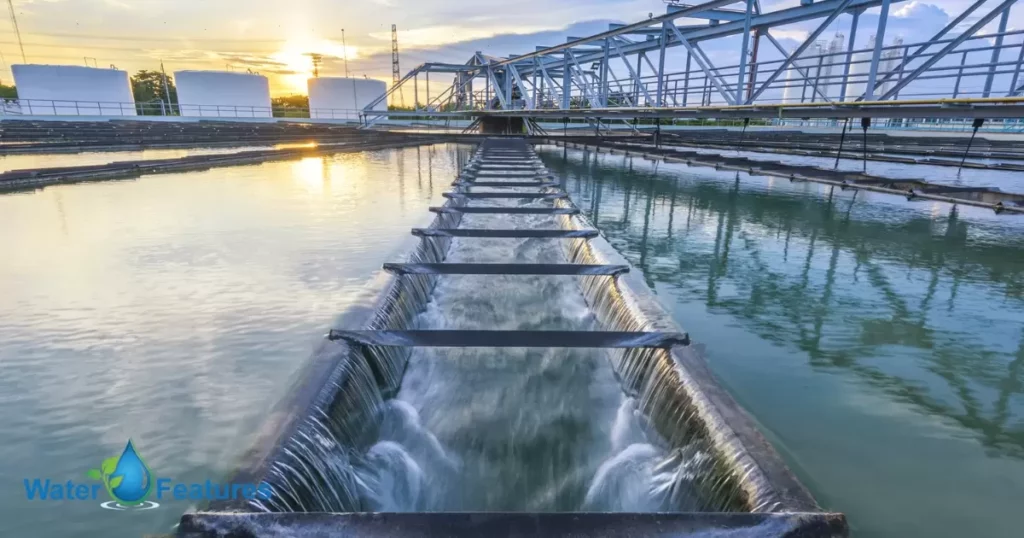
The New Orleans Carrollton Waterworks, often referred to as the Carrollton Plant holds a significant place in the history of New Orleans. It is the city’s oldest operating water treatment facility, founded in 1820.
Located in the Uptown area of New Orleans, this plant plays a crucial role in providing clean and safe drinking water to the city’s residents. The Carrollton Plant draws water from the Mississippi River and treats it through a series of processes, including coagulation, flocculation, sedimentation, filtration, and disinfection.
These steps ensure the removal of impurities and contaminants, meeting the high standards set by the United States Environmental Protection Agency (EPA). The plant’s history, technology, and dedication to water treatment make it an essential part of New Orleans’ infrastructure, ensuring that residents and visitors can enjoy safe tap water.
Saltwater intrusion is no longer a threat to New Orleans’ drinking water
Saltwater intrusion, once a looming threat to New Orleans’ drinking water, has been successfully mitigated in recent years. This issue stemmed from the city’s location, with parts of it lying below sea level, making it susceptible to saltwater intrusion from the Gulf of Mexico. When saltwater infiltrates freshwater sources, it contaminates the drinking water supply, posing significant health and infrastructure challenges.
To combat this issue, New Orleans invested in a robust system of levees, floodgates, and pumps, such as the Greater New Orleans Hurricane and Storm Damage Risk Reduction System. This system is designed to protect the city from storm surges and prevent saltwater from entering the freshwater sources.
Through these measures, New Orleans has effectively safeguarded its drinking water supply, ensuring that residents and visitors can enjoy clean, safe water without the looming threat of saltwater intrusion.
Can You Drink Tap Water in New Orleans?
When it comes to drinking tap water in New Orleans, the city’s residents and visitors can do so with confidence. The water supply in New Orleans primarily originates from the Mississippi River, and it undergoes a comprehensive treatment process. This process is essential to meet the stringent quality standards established by the United States Environmental Protection Agency (EPA).
The Sewerage and Water Board of New Orleans (SWBNO) is responsible for ensuring the safety and quality of the city’s tap water. Although the Mississippi River’s water is known for its high sediment content, the SWBNO employs effective treatment methods that successfully remove impurities and pathogens.
Nevertheless, there have been concerns raised about the presence of lead in older plumbing systems that might leach into the water supply, to address this, the SWBNO is actively working to replace lead service lines and offers free lead testing for residents. Chlorine is used for disinfection, which can sometimes affect the water’s taste and odor.
New Orleans, Louisiana Water Quality Report
The New Orleans, Louisiana Water Quality Report is a comprehensive document that provides detailed information about the quality of the city’s tap water. This report is essential for residents and visitors as it offers insights into the safety and purity of the water they consume.It contains crucial data on various aspects of water quality, including the presence of contaminants, treatment processes, and compliance with national standards.
The report typically includes data on water sources, such as the Mississippi River, the primary source of New Orleans’ tap water. It also elaborates on the treatment procedures, emphasizing the steps taken to ensure that the water is free from harmful substances. These steps may involve coagulation, sedimentation, filtration, and disinfection through chlorine.
The report delves into the measures in place to address specific concerns, like the replacement of lead service lines to minimize lead exposure.It may also detail the levels of chlorine in the water, which can affect taste and odor, and measures taken to mitigate this.
New Orleans Water Quality
New Orleans Water Quality is a crucial aspect of life in the city. The water primarily comes from the mighty Mississippi River, but what’s most important is how it’s treated and maintained before reaching your tap. The Sewerage and Water Board of New Orleans (SWBNO) employs a series of rigorous treatment processes.
This includes coagulation, flocculation, sedimentation, and filtration to remove impurities, along with disinfection using chlorine to ensure the water is safe to drink. The United States Environmental Protection Agency (EPA) sets strict standards for water quality, which New Orleans adheres to through regular testing.
They check for contaminants such as lead and chlorine, with results publicly accessible.
To combat this, SWBNO initiated programs to replace lead service lines and offered free lead testing for residents. The taste and odor of the water can also be influenced by chlorine, which, though necessary for disinfection, can result in a less-than-pleasant flavor.
FAQ’S
Is tap water clean in New Orleans?
Yes, tap water in New Orleans is generally considered safe to drink. The Sewerage and Water Board of New Orleans (SWBNO) sources water from the Mississippi River.
How clean is the water in New Orleans?
The cleanliness of water in New Orleans is carefully monitored and treated to meet strict safety standards.
Can you drink tap water in the New Orleans French Quarter?
Yes, you can drink tap water in the New Orleans French Quarter. The tap water in this iconic neighborhood is sourced from the same treated supply as the rest of the city.
What is the quality of drinking water in New Orleans?
The quality of drinking water in New Orleans is generally safe and meets the strict standards set by the United States Environmental Protection Agency (EPA).
Conclusion
In conclusion, the question of whether you can drink tap water in New Orleans is one that reflects the city’s complex history and its commitment to improving water quality. While New Orleans draws its water from the mighty Mississippi River, it undergoes rigorous treatment processes to meet stringent EPA standards. The city’s dedication to transparency, public education, and addressing lead concerns demonstrates its determination to provide safe and clean drinking water.
New Orleans tap water is on its way to becoming even safer and more palatable. While the taste may not match the culinary delights that the city is known for, the commitment to water safety is a testament to the city’s resilience and vitality. Whether you’re a local or a visitor, feel confident in sipping from the tap as you savor the enchanting spirit of New Orleans, one glass at a time.
